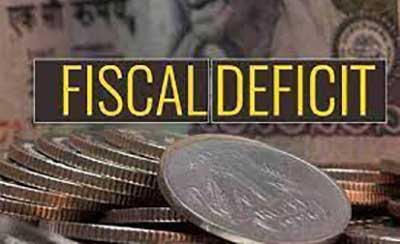Relevance: GS-3: Government Budgeting.
Key phrases: Fiscal Deficit, Fiscal Consolidation, GDP, FRBM Act, Target
Why in News?
- India Ratings & Research (Ind-Ra) has estimated Centre’s fiscal deficit for current fiscal (2021-22 or FY 22) 20 basis points lower than budgeted number of 6.8 per cent.
What is Fiscal Deficit?
- The difference between total revenue and total expenditure of the government is termed as fiscal deficit. It is an indication of the total borrowings needed by the government. While calculating the total revenue, borrowings are not included.
- The gross fiscal deficit (GFD) is the excess of total expenditure including loans net of recovery over revenue receipts (including external grants) and non-debt capital receipts. The net fiscal deficit is the gross fiscal deficit less net lending of the Central government.
- Generally fiscal deficit takes place either due to revenue deficit or a major hike in capital expenditure. Capital expenditure is incurred to create long-term assets such as factories, buildings and other development.
- Fiscal deficit = Total expenditure – Total receipts excluding borrowings
Reason for increased Fiscal Deficit:
- Lower Revenue Realisation: The shortfall in Centre's revenue collection owing to the interruption in economic activity and the additional expenditure requirements to mitigate the fallout of the pandemic on vulnerable sections, created immense pressure on the fiscal resources. According to the Economic Survey 2021, the government may register a fiscal slippage in 2020-21 due to revenue shortfall.
- Higher Expenditure: There has been a notable increase in revenue expenditure in food and public distribution and rural development which could be attributed to the government’s pandemic relief programs. The capital expenditure during April to December 2020 stood at Rs 3.17 lakh crore, 24 per cent higher than the capital expenditure during the corresponding period in the previous year.
Fiscal Deficit and the Economy:
- Fiscal deficit has a direct impact on a country's growth, price stability and inflation. When an economy is in a slowdown or recession, governments tend to run a higher deficit to counter the negative impact of slowdown in private demand.
- Higher government spending, by keeping the public investment high, has the potential to push up overall demand in the economy.
- However, if the timing and size of deficit isn’t kept under watch it could create inflation by raising the cost of inputs like labour, raw material.
- Further, when government borrows from the market it leaves a lesser share for the private sector to finance their investment plans. This phenomenon is called ‘crowding out’ effect. It tends to drive up interest rates.
- However, when fiscal deficit is used for investments (building physical or social infrastructure) it creates long term assets in the economy and helps generate additional income for the poorer sections which in turn helps in reviving demand.

Policy to Tackle fiscal deficit
- FRBM Act 2003 : This act was brought to impose fiscal discipline on the government. It means fiscal policy should be conducted in a disciplined manner or a responsible manner i.e., government deficits or borrowings should be kept within reasonable limits and the government should plan its expenditure in accordance with its revenues so that the borrowing should be within limits.
- In May 2016, the government set up a committee under NK Singh to review the FRBM Act. The committee recommended that the government should target a fiscal deficit of 3 per cent of the GDP in years up to March 31, 2020, cut it to 2.8 per cent in 2020-21 and to 2.5 per cent by 2023.
- Then, the FRBM Act sets new targets for the government to bring down fiscal deficit. It requires the government to limit fiscal deficit to 3 per cent of gross domestic product (GDP) by March 31, 2021 and central government debt to 40 per cent of GDP by 2024-25.
- However, the Act allows invoking of an escape clause in situations of calamity and national security. In such situations, the government can deviate from its annual fiscal deficit target.
- In her Budget speech last year, Sitharaman had invoked the escape clause and taken a 0.5 per cent deviation. The fiscal deficit target for FY20 was revised to 3.8 per cent, while pegged the target for FY21 at 3.5 per cent.
Measures to Reduce Fiscal Deficit:
- Increased emphasis on tax-based revenues and appropriate measures to reduce tax evasion.
- Disinvestment should be done where assets are not being used effectively.
- Reduction in subsidies by the government will also help reduce the deficit.
- Try and avoid unplanned expenditures.
- Borrowing from domestic sources.
- Borrowing from external sources.
- A broadened tax base may also help in reducing the government deficit.
Source: The Hindu BL
Mains Question:
Q. The rise in fiscal deficit in FY 20 has wiped out 6 years of gains from 2013 when it was 4.5%. In the context of this statement explain Fiscal Deficit? How does fiscal deficit impact the economy? Illustrate.









